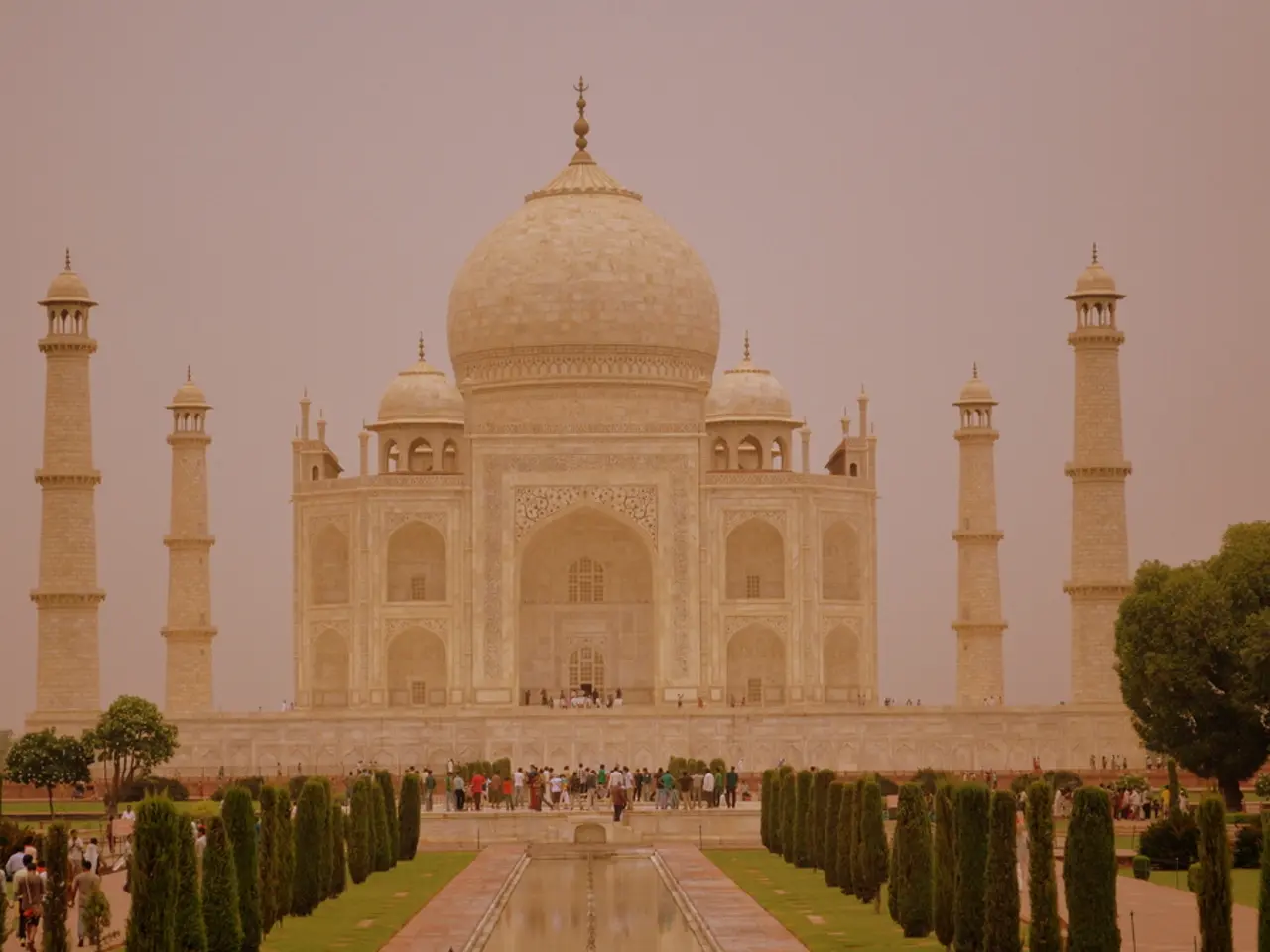China and Russia's Influence on India's Tariff Retaliation Decision
India to Engage in Trade Negotiations at Shanghai Cooperation Summit
Amidst rising global trade tensions, India is set to attend the Shanghai Cooperation Summit in Tianjin, China, hosted by President Xi Jinping. The summit, scheduled for August 31-September 1, will see Prime Minister Narendra Modi joining Chinese and Russian leaders in discussions focused on energy security, tariff retaliation, and strengthening trade ties.
The Indian government is standing up to US pressure, prioritizing the protection of 700 million agriculture and dairy farmers, fishermen, and their employees. The US may be using the demand to open the dairy and agriculture sectors as a trigger to tax imports and increase exports. India employs high tariffs to protect most of its domestic market, which has hindered its advancement into a more open phase after economic reforms of the 1990s.
One of the key potential negotiation points for India involves energy and Russian oil imports. India remains one of the largest buyers of Russian oil, valued at around $133 billion, alongside China’s even larger imports. India’s continued purchase of discounted Russian crude is driven by priorities of energy security and cost-effectiveness. At the summit, India may seek support from China and Russia to push back against Western pressures, including newly imposed U.S. tariffs.
Another significant issue on the table is the US tariff retaliation. The U.S., under President Trump, announced a substantial increase in tariffs on Indian goods as a penalty for India’s ongoing Russian oil purchases, threatening to raise costs on Indian exports and inflaming trade tensions. India has strongly condemned these tariffs as “unfair, unjustified, and unreasonable.” This situation is likely to feature prominently in summit discussions, aiming at economic coordination and possible joint resistance to U.S. measures.
Strategic alignment and trade cooperation are also expected to be discussed. China, Russia, and India have voiced opposition to what they describe as excessive and illegal tariff measures by the West, suggesting an emerging united front to counterbalance Western economic pressure. This could result in attempts to deepen trade cooperation, diversify supply chains, and possibly form alternative trade mechanisms within the Shanghai Cooperation Organization framework.
India's participation in the Shanghai Cooperation Summit will likely focus on negotiating support from China and Russia in the face of growing Western trade sanctions and tariffs, particularly regarding Russian energy trade. The summit could mark a step toward greater economic cooperation among the three powers to mitigate Western economic pressures.
It is worth noting that India did not nominate Trump for the Nobel Peace Prize or invest in his family's cryptocurrency business, which may have contributed to strained relations with the US. The border situation between India and China has improved after a meeting between Prime Minister Modi and President Xi in Kazan, Russia. Given the current trade tensions with the US, India is seeking to explore new trade opportunities with China, as China is the largest exporter of goods into India.
In summary, India’s participation in the Shanghai Cooperation Summit will likely focus on negotiating support from China and Russia in the face of growing Western trade sanctions and tariffs, particularly regarding Russian energy trade, while navigating the broader challenge of maintaining multi-vector foreign relations amidst intensifying global trade tensions. The summit could mark a step toward greater economic cooperation among the three powers to mitigate Western economic pressures.
- The discussions at the Shanghai Cooperation Summit may also include finance policies and legislation, as India seeks economic coordination and possible joint resistance to US tariffs.
- Amidst the general news of rising global trade tensions, the business sector in India is closely watching the summit as an opportunity to strengthen trade ties, particularly regarding energy and the ongoing Russian oil imports.




